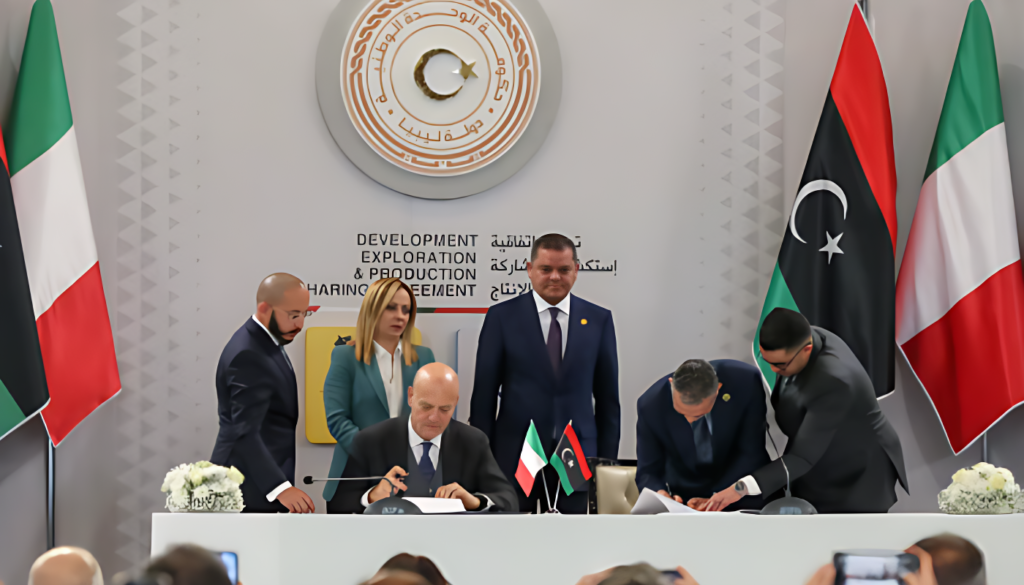
The unexpected release of Osama Al-Masri, a notorious Libyan warlord accused of war crimes, has ignited controversy and raised serious questions about Italy’s diplomatic and political ties to Libya. Al-Masri’s arrest in January was initially seen as a significant opportunity for justice, but his swift release has sparked widespread outrage, putting Prime Minister Giorgia Meloni‘s government under scrutiny.
Al-Masri’s Arrest and Release: A Timeline of Controversy
Al-Masri, a former militia leader accused of rape, torture, and murder during his time in control of a Libyan prison, was detained by Italian authorities in Turin while attending a Juventus football match. The arrest was made in response to an International Criminal Court (ICC) warrant. However, within just 48 hours, Italian authorities released him, citing national security concerns. This sudden decision has raised alarms among human rights groups and political opposition.
On January 28, Meloni announced that she was under investigation by Italian prosecutors for allegedly aiding Al-Masri’s repatriation, alongside Interior Minister Matteo Piantedosi and Justice Minister Carlo Nordio. The Italian government’s actions have sparked accusations of abuse of office, as well as claims of a political cover-up to protect Italy’s strategic interests in Libya.
Political Fallout and Legal Questions
The investigation into the release of Al-Masri has become a political firestorm. The ICC has requested an explanation from Italy regarding its failure to extradite Al-Masri to The Hague. Opposition parties have filed a motion of no confidence against Nordio, accusing the government of mishandling the case.
Libya has been in turmoil since the fall of Muammar Gaddafi, with various militias controlling different regions of the country. Italy, with its longstanding historical ties to Libya, has maintained a strong presence, securing lucrative oil deals and negotiating with militia leaders to control migration routes. These interests have raised questions about Italy’s willingness to overlook human rights violations in favor of political and economic deals.
Italy’s Diplomatic Strategy in Libya
Since the fall of Gaddafi, Italy has continued to exert influence in Libya, particularly through energy giant Eni. In 2023, Meloni’s government secured an $8 billion gas deal with Libya, cementing Italy’s energy relationship with the war-torn country. Al-Masri, as a key figure in Libya’s militia system, played a role in providing intelligence on detained militants, including those linked to ISIS, for Western governments.
Many Libyans and activists hoped that Al-Masri’s arrest would lead to justice for his alleged crimes, including his role in the torture and abuse of detainees. However, the warlord’s release has been seen as symbolic of Italy’s preference for diplomatic and economic ties over human rights concerns.
International and Domestic Reactions
South Sudanese migrant Lam Magok Biel Ruei, who claims to have been tortured by Al-Masri in Mitiga prison, condemned the Italian government’s decision to release the warlord, saying it gave him the power to continue his abuses. Ruei, who has filed a complaint against the government, fears that Al-Masri’s return to Libya will embolden other war criminals.
In defense, Meloni and her allies have insisted that Al-Masri’s release was not related to Italy’s migration policies. However, critics have found these explanations unsatisfactory, pointing to the secrecy and contradictory statements surrounding the decision.
The Road Ahead: Political Implications
As the investigation into Al-Masri’s release continues, it has become clear that the political fallout from the case will be far-reaching. Meloni’s confrontational rhetoric against the judiciary, particularly regarding her ongoing attacks on Italy’s legal system, has intensified with this scandal. She has publicly criticized the ICC, accusing it of unfairly targeting her government, echoing similar sentiments from U.S. officials.
The case also highlights the complexities of Italy’s foreign policy in North Africa, where the pursuit of economic interests has sometimes conflicted with human rights principles. As the investigation moves forward, it remains to be seen whether the Italian government will be held accountable or whether political considerations will prevent meaningful consequences.
Conclusion
The release of Osama Al-Masri has sparked a major political scandal in Italy, raising critical questions about the country’s approach to Libya and its commitment to human rights. As Prime Minister Giorgia Meloni faces scrutiny over her role in the warlord’s repatriation, the investigation is likely to shape Italy’s domestic and foreign policies for years to come.
